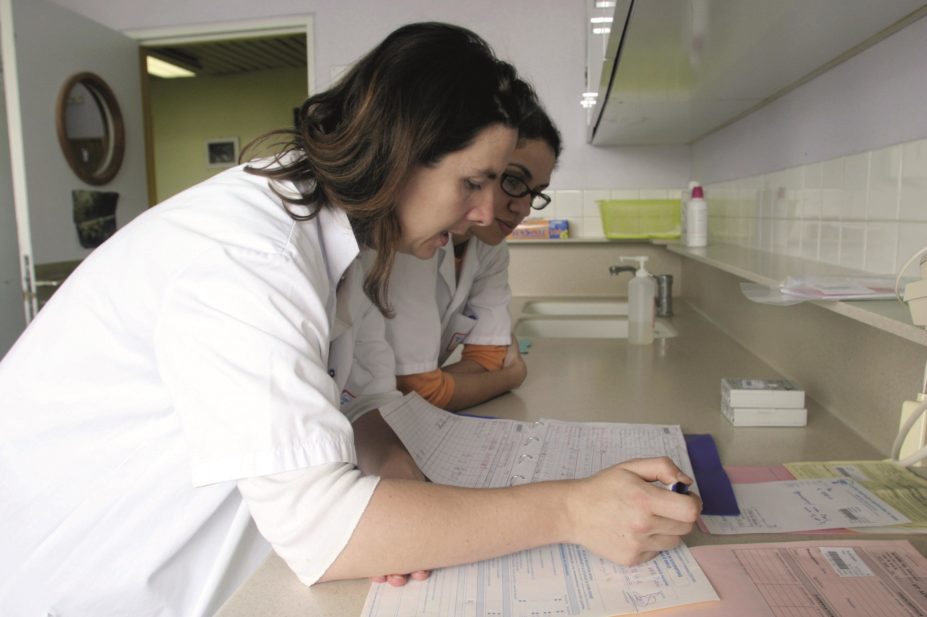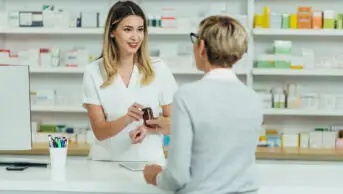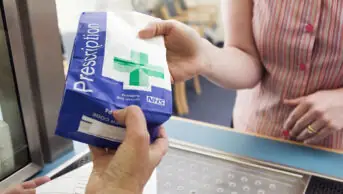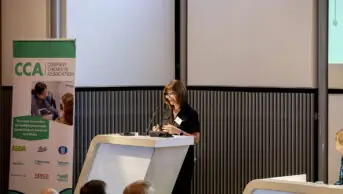
BSIP SA / Alamy
Gaining an independent prescribing qualification allows pharmacists to make diagnoses and prescribe medicines within their area of competency. According to the original guidance on non-medical prescribing issued by the Department of Health, trainee independent prescribers must spend 90 training hours with a doctor or dentist — or designated medical practitioner (DMP). So how can trainee independent prescribers find a DMP willing to give up their time for free, and how can both parties make the most of the relationship?
Need to know: independent prescribing
Legislation to allow pharmacists to prescribe independently came into effect in 2006 (Improving patients’ access to medicines: a guide to implementing nurse and pharmacist independent prescribing within the NHS in England) allowing qualified pharmacist independent prescribers to prescribe autonomously for any condition within their clinical competence.
Pharmacists eligible for prescribing training need to have at least two years’ experience practising as a pharmacist in a clinical environment.
In order to qualify as an independent prescriber, pharmacists must complete a programme accredited by the General Pharmaceutical Council (GPhC). The course is typically run part-time over six months and is often delivered through a combination of face-to-face teaching sessions (usually one day per week) and self-directed study.
Some universities offer a programme with a larger distance learning option, but all programmes will involve a minimum of 26 days of teaching and learning activity. In addition to this, each pharmacist must successfully complete at least 12 days of learning in a practice environment while being mentored by a DMP.
Starting the process
Rena Amin is joint associate director, medicines management, at NHS Greenwich clinical commissioning group (CCG) and clinical associate at Hartland Way Surgery in Croydon. She qualified as an independent prescriber in 2006, and has since encouraged her team of prescribing advisers to complete the training.
Amin believes you need to “set your foundations right” before you decide to apply to become an independent prescriber, which means looking at whether you have the right skillset for the clinical area you want to work in, if there is a service you can go into once you are qualified, and whether your choice enables you to access the prescribing budget where you are. “There’s no point being an independent prescriber if you can’t have access to a prescribing budget to write your prescription,” she says, “but going through this process will automatically put you in contact with a medical practitioner in that service sector.”
Ziad Suleiman completed his independent prescribing course in June 2015 at the University of Bath and works as a prescribing support pharmacist at Gloucestershire CCG. He is also a ScriptSwitch profile lead in medicines management — ScriptSwitch is a computer programme that interacts with GP clinical systems and operates at the point of prescribing to promote rational prescribing choices and adherence to local guidelines. He emphasises the need for a good relationship with a doctor willing to help you through the course: “In primary care, it helps if you do surgery support work as you will already have regular working relationships with various GPs, although community pharmacists may find it more challenging to get such a relationship. However, there were a few community based colleagues on my course who managed to get a local GP to be their DMP, so it is possible.”
If you are struggling to find a DMP, all trusts have a non-medical prescribing lead and they should have a list of mentors, so try approaching these leads for contacts.
Clear explanations
Once you have identified a potential DMP, there is much you can do to help them understand their role better.
Suleiman says that most doctors’ first thoughts will be ‘have I got the time for this’ so allaying those fears upfront is essential. He suggests “finding as much out about the course and how much input the DMP will need to give, and use examples of pharmacists already prescribing in your area by contacting your local non-medical prescribing lead. Finally, make sure you know what your role will look like once qualified, because if you can’t picture it, your DMP has no chance of understanding it.”
However, DMP Anna Crown, consultant endocrinologist and honorary clinical senior lecturer at Brighton and Sussex University Hospitals NHS Trust, says in her experience the only time constraint was “finding mutually convenient times to meet”. Crown is the daughter of June Crown, author of the ‘Crown Report’ that launched the concept of non-medical prescribing back in 1989, which may have helped in her understanding of the role of independent prescribers.
Nonetheless, she did go on a half-day course run by the University of Brighton to introduce the responsibilities of the role, which she says was “helpful”, but adds: “I did also rely on my supervisees to ensure I did what was required. I think DMPs do need guidance and probably that needs updating as the role [and] course evolve with time.”
Crown also suggests that in a centre with many DMPs, it “might be helpful to network a bit”, but says this would need to be facilitated as “you tend to operate as a dyad rather than linking in with other DMPs and their supervisees”.
Knowledge gains
Once you have a DMP you can gain a lot from the relationship, not least a better understanding of a prescriber’s take on things.
Debbie Jones is a community mental health nurse in the crisis and home treatment team at the 2gether NHS Foundation Trust in Gloucestershire, and completed her nurse prescribing training at the University of Gloucestershire around five years ago. The university approached the trust to organise DMPs for the trainee nurse prescribers. Throughout the six-month course, Jones had regular supervision and reviews with her DMP, and was given time to accompany her DMP on ward rounds and outpatient appointments.
Following the completion of her training, Jones continues to have six-weekly supervision with the DMP to talk about cases and look at new medicines and interactions, best practice, and guidelines. “They don’t do that everywhere and I think it’s a shame it’s not offered routinely after your nurse prescribing course as I feel it helps our prescribing and we feel more supported — particularly as we can prescribe anything from the BNF within our speciality,” she says.
Suleiman adds: “When you start to see patients yourself, it is amazing how many odd queries, dilemmas and decisions you have to deal with, so having that relationship with your DMP to discuss these issues and see what they would have done in the same situation is vital and a huge learning point.”
Consultation tips also help to round off your learning, according to Sinead Holmes, lead pharmacist for general surgery at Arrowe Park Hospital. She was in the March 2013 intake at Chester University’s independent prescribing course, and mostly uses her qualification within the scope of parenteral nutrition. She says working with her DMP helped her “consultation and examination skills, as well as my interpretation of information given by patients and carers, and it was also useful to see how to present a patient to a senior when asking for advice”.
Benefits of being a DMP
But with no remuneration and obvious time requirements, why would someone decide to be a DMP for a trainee independent prescriber?
“GPs are increasingly recognising the added benefit that a pharmacist can bring to the multidisciplinary team and are therefore keener to act as a DMP,” says Jacqui Kinsey, director of prescribing education at Keele University’s Centre for Professional Development and Lifelong Learning. “I’ve had a few come to me saying they’d like to help or like to get hold of an independent prescriber, particularly since the renewed emphasis on pharmacists working with GPs. Consultants might also like an independent prescriber because they can use their junior doctors elsewhere, and it frees up the medics’ time to do other things.”
DMPs can also benefit from the multidisciplinary team environment that working with a trainee independent prescriber fosters within departments, according to Crown: “I think the DMP gains from strengthening relationships with colleagues and developing the skill-mix of the department. You really get an appreciation of the skills of your colleagues and get to know them better.”
And there are safety factors too. “As doctors, we’ve all been in a crazy situation where a specialist nurse has been seeing a patient, written a prescription and knocks on the door to ask for a signature, when the doctor may be much less familiar with the patient and their current situation,” says Crown. “Also on the wards, ward pharmacists will point out the errors that have been made (for example, drugs omitted, wrong doses, potential interactions) and ask a junior doctor to correct the chart. In both situations, it’s much safer for patients and less risky for doctors if that healthcare professional is an independent prescriber.”
Good relations
It seems that once these relationships are set up, they work well for the duration of the prescribing course.
“In the 15 years I’ve been involved in this area we’ve only had a couple of problems,” says Kinsey. “These were down to DMPs or their family members becoming sick and having to pull out. I have also heard of GPs who are keen to offer the training and get an independent prescriber on their team but struggle to get the practice manager or other partners on board because of the lack of funding — although that’s not a common problem.”
However, Amin believes there is still more to be done towards building “an acceptable model of care”. She says: “Lots of practices are looking to employ pharmacists as they are unable to recruit GPs or practice nurses and they feel that having a practice-based pharmacist will enhance the patient care and outcomes for their practice. Not everyone is altruistic about training and mentorship, but in about six months’ time, any time a DMP has given to training an independent prescriber will bring a return on that investment, including progressing their relationship with commissioners.”


